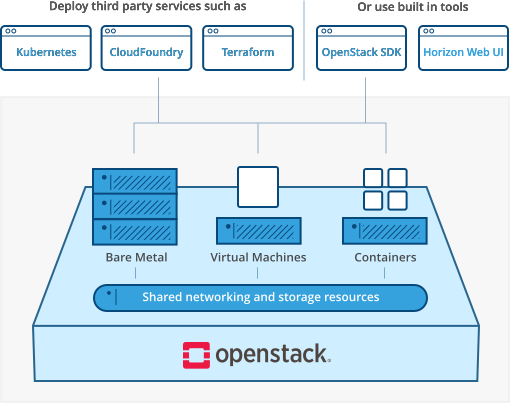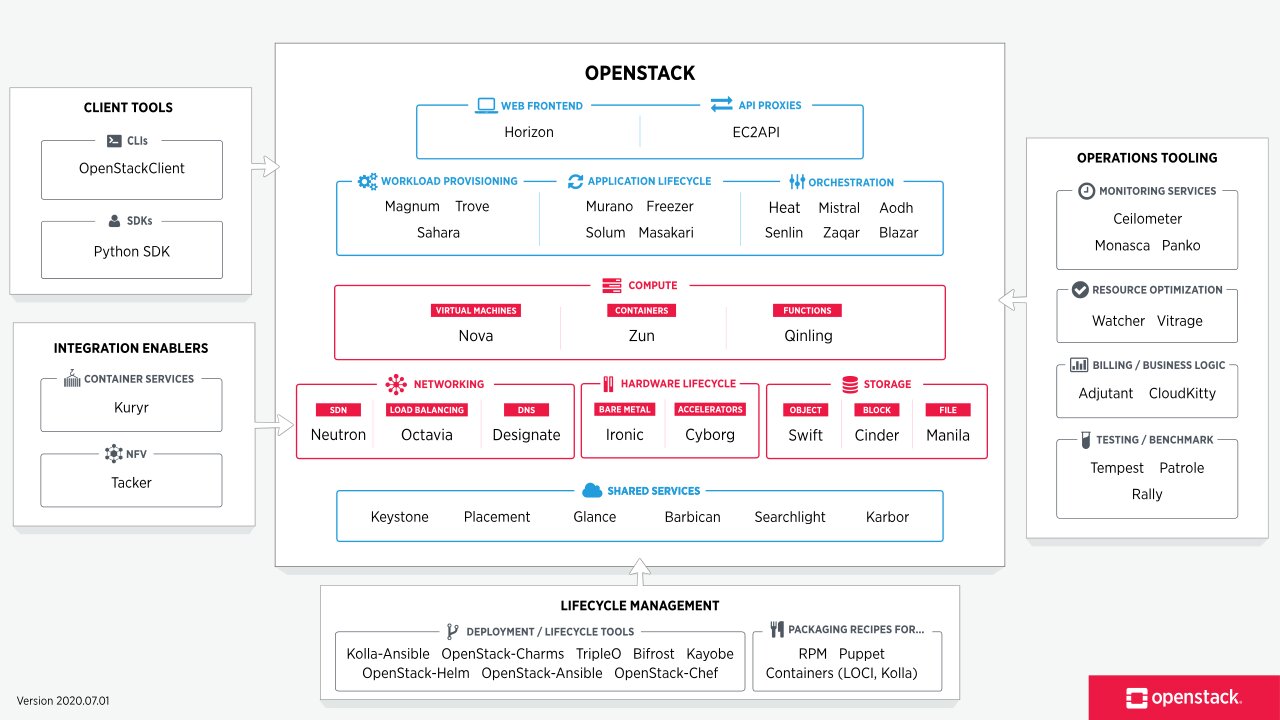Deployed by thousands. Proven production at scale. OpenStack is a set of software
components that provide common services for cloud infrastructure.
What is OpenStack?
OpenStack is a cloud operating system that controls large pools of computing, storage, and networking resources throughout a datacentre, all managed and provisioned through APIs with common authentication mechanisms. A dashboard is also available, giving administrators control while empowering their users to provision resources through a web interface. Beyond standard infrastructure-as-a-service functionality, additional components provide orchestration, fault management, and service management amongst other services to ensure the high availability of user applications.

Cloud Infrastructure for Virtual Machines, Bare Metal, and Containers
Openstack controls large pools of compute, storage, and
networking resources, all managed through APIs or a dashboard. Beyond standard infrastructure-as-a-service functionality, additional components provide orchestration, fault management, and service management amongst other services to ensure the high availability of user applications.
Overview of OpenStack features and benefits
| Features | Benefits |
|---|---|
| Leverages commodity hardware | No lock-in, lower price/GB. |
| HDD/node failure agnostic | Self-healing, reliable, data redundancy protects from failures. |
| Unlimited storage | Large and flat namespace, highly scalable read/write access, able to serve content directly from the storage system. |
| Multi-dimensional scalability | Scale-out architecture: Scale vertically and horizontally-distributed storage. Backs up and archives large amounts of data with linear performance. |
| Account/container/object structure | No nesting, not a traditional file system: Optimized for scale, it scales to multiple petabytes and billions of objects. |
| Built-in replication 3✕ + data redundancy (compared with 2✕ on RAID) |
A configurable number of accounts, containers, and object copies for high availability. |
| Easily add capacity (unlike RAID resize) | Elastic data scaling with ease. |
| No central database | Higher performance, no bottlenecks. |
| RAID not required | Handle many small, random reads and writes efficiently. |
| Built-in management utilities | Account management: Create, add, verify, and delete users; Container management: Upload, download, and verify; Monitoring: Capacity, host, network, log trawling, and cluster health. |
| Drive auditing | Detect drive failures preempting data corruption. |
| Expiring objects | Users can set an expiration time or a TTL on an object to control access. |
| Direct object access | Enable direct browser access to content, such as for a control panel. |
| Realtime visibility into client requests | Know what users are requesting. |
| Supports S3 API | Utilize tools that were designed for the popular S3 API. |
| Restrict containers per account | Limit access to control usage by users. |
The OpenStack Landscape
OpenStack is broken up into services to allow you to plug and play components depending on your needs.
The OpenStack map gives you an “at a glance” view of the OpenStack landscape to see where those services
fit and how they can work together.




